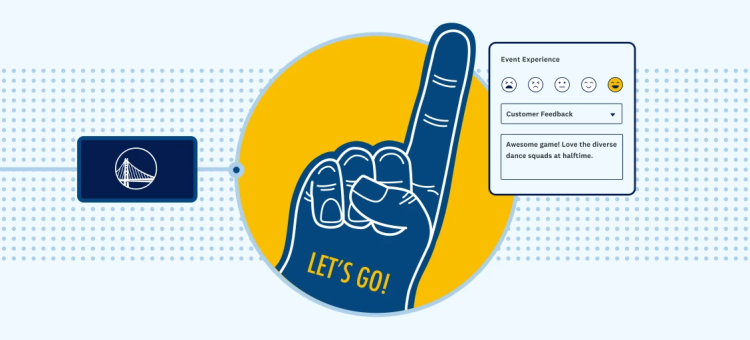It might seem a little unusual to ask for this kind of feedback, but you have to keep respondents’ time (and sanity) in mind when you’re creating your survey. Difficult surveys can lead to survey fatigue, which can really affect the quality of your data.
If asking your respondents about your survey design sounds like a lot of work, then don’t worry. We did it for you! We used SurveyMonkey Audience to ask people across the U.S. what really annoys them about taking surveys, and 3 things stood out above the rest.
1. Respondents don’t want to a take a survey that takes longer than 10 minutes
Having a busy day? Everyone has them—including your respondents. That’s why 60% of people say that they don’t want to take a survey that takes longer than 10 minutes. 87% of people say they don’t want to take one that takes longer than 20 minutes.
The people who take your surveys usually really do want to give you their opinions. They really care, just not enough to spend half of their lunch break responding to your survey. Keep their schedules in mind when you create your survey and don’t make a survey that’s too long.
Pro tip: Run your survey through the SurveyMonkey Genius tool by clicking the “Score my survey” button at the top of the Create screen. It will tell you how long it takes respondents to finish your survey and provide other tips for making it easier on them.
There are two groups to who are way more resistant to survey fatigue, which means it’s appropriate to send them longer, more time-consuming surveys.
Respondents who are invested or interested in the survey topic. When you send a feedback survey to a parent-teacher association, you’d better believe you’re going to get answers. Parents usually really care about issues that impact their kids and are therefore more than willing to provide their feedback.
Groups of respondents like parents probably won’t care how long your survey is if they care enough about the topic.
Reasonably incentivized respondents. Offering people incentives for taking your surveys can be a good strategy to get extra survey responses from people who aren’t necessarily invested or interested in the topic. It’s important not to go overboard with incentives because it can encourage respondents to rush through survey just to get the prize at the end.
You can learn much more about offering survey rewards here. If finding the balance between too little and too much reward sounds like a lot of work, SurveyMonkey Audience can help. By donating 50 cents to charity each time a respondent takes a survey, SurveyMonkey Audience encourages thoughtful responses by offering a just the right amount of incentive.
2. Requiring answers to too many questions can hurt your data
When you require an answer to a survey question, respondents can’t continue the survey without answering—even if they really don’t want to.
Not being able to skip a question can lead to frustration, and frustration is a sure way to survey fatigue. In fact, only 36% of respondents said they usually go back and provide the correct answer when faced with this situation. The rest don’t react too well.
27% say not being able to skip a question is enough to make them quit the survey completely. If too many people quit, you’ll end up much with a lot less data than you want.
Another 25% say they’ll go back and provide a random answer just to continue the survey. This type of behavior is called satisficing and it can actually be a lot worse for your data than people who quit your survey.
For those of you keeping track of the percentages, the remaining 12% said the required question issue has never happened to them.
We’re not saying you shouldn’t ever require answers to questions. It can be entirely appropriate, especially for the most crucial questions in your survey. But you’ve got to make a judgment call about which—and how many—questions you require. Are you going to ask people potentially sensitive or difficult questions? Consider not requiring answers to it.
Important caveat: Remember those two groups of people who are more resistant to survey fatigue? They’ll also be more receptive to required-answer questions. If you’re surveying a group of interested people or you’re using SurveyMonkey Audience you can require answers to more questions.
3. Respect your respondents’ boundaries
To survey creators, online surveys can seem like a conveniently impersonal way of asking people for information. After all, it’s easier to ask people sensitive questions when you’re not face-to-face with them.
But to survey takers, those questions can be just as sensitive as they would be in person. Asking survey questions that makes respondents uncomfortable can increase survey fatigue by a lot.
Some questions are more sensitive than others, and it may surprise you which ones.
- 77% of people said they wouldn’t provide contact information like phone number or email in a survey.
- 55% said they wouldn’t provide their full name.
- 33% said they wouldn’t say how much money they make.
- 27% said they wouldn’t provide identifying geographic information, like zip code.
- 7% said they wouldn’t provide information on race or ethnicity.
Remember, there are always times when these types of question will be appropriate. For example, if you’re using your survey as a sign-up form (and it’s clear to your respondents) name, contact information, and geographic information are probably crucial components.
The results above don’t really address questions that are uncomfortable or sensitive because they’re too personal. But the same lesson applies: It’s crucial to be as upfront about your motives as possible. If it’s totally clear to respondents why you’re asking the questions you’re asking, they’ll be more likely to respond.
Pro tip: It may be a good idea to write an introduction to your survey to explain why you’re asking what you’re asking. And if you also ensure respondents’ privacy, they’ll be much more likely to respond to sensitive or personal questions.
What do your respondents want out of your survey? They want you to respect their time, their sanity, and their boundaries. When you think about it, that’s not too much to ask. It’s pretty simple to get right—just be conscious about what you ask, how you ask it, and how long it takes to ask it.
Need help finding that line? We’ll be here.




